Travel Nursing Career
The COVID-19 pandemic cut deeper into a wound in the healthcare world: the dire shortage of nurses. The patients and short staff of hospitals needed an ally.
It was travel nurses who answered the call. But who are these healthcare heroes?
What Exactly Does a Travel Nurse Do?
Wherever nurses are needed, that’s where travel nurses go.
Travel nurses work short-term terms in healthcare facilities. They’re assigned to work at locations with staffing shortages. Employers often cover housing and relocating costs to attract recruits.
Travel Nurse vs. Staff Nurse
Travel nursing and staff nursing both come with perks. Here’s what benefits you need to consider when deciding which career path to take:
Pros of Staff Nursing
- Having a Home Base: The benefits of a stable career aren’t the only perks of working at a regular location. When you work at one hospital, you’re greeted by the same friendly faces. These are the people with whom you’ll share jokes, mid-shift coffee breaks, and countless other memories.
- Benefits: Staff nurses are more likely to receive PTO, insurance, and other perks that come with long-term employment.
- Chance to Advance: Long-term assignments give your supervisors time to see your leadership skills.
Pros of Travel Nursing:
- Housing Stipend: Many hospitals offer travel nurses a stipend to help cover housing and meal costs. The bonus? These stipends are non-taxable.
- High Salary: Hospitals need nurses. Travel nurses have the unique ability to drop everything and aid areas with staffing shortages. Their flexibility and hard work are rewarded with a generous salary.
- Flexibility: Always dream of taking an epic road trip? Travel nurses can take in the beauty of the country one assignment at a time. Travel nurses can pick when they take their time off, whether it be after assignments or written in their contracts.
How Long are Travel Nurse Assignments?
Typical travel nursing contacts are 13 weeks (about three months) long. This time relieves healthcare facilities from their staffing shortage and gives them time to find long-term employees.
Some contracts are short-term eight-week (about two months) contracts. There are also long-term contracts that go up to 26 weeks (about six months) long. Travel nurses might also be asked to extend their contracts if there’s still a staffing need.
Frequently Asked Questions About Travel Nursing
Seeing the world and meeting fascinating people requires a lot of planning. Here’s what you need to consider before starting a career in travel nursing.
Can a Travel Nurse Call in Sick?
Hospitals and clinics hire travel nurses with the expectation that they won’t take days off. You’re there to respond to a staffing shortage, not be the staffing shortage.
However, being sick is an unavoidable part of life. Keep this in mind and ask your employers about calling in sick. Understand that your agency might reject this since it jeopardizes their pay and your contact. However, most agencies allow for a couple of days off.
Can Travel Nurses Travel Together?
A major drawback to travel nursing is the loneliness that comes with moving from place to place. Having a friend or a partner travel nursing with you makes your temporary assignments feel more like home.
It’s possible to travel together with a friend. The key is communication. Talk to your agency and the manager of your healthcare facility that you work together. If you and your travel buddy bounce off each other at work, let them know! This makes your partnership even more appealing to employers.
You also need to talk with your fellow travel nurse. Where do you want to go? What kind of assignments do you want to have? Do you want to work in the same hospital or two different hospitals in the same city? Clear communication is the heart of any good roommate relationship.
Travel Nursing with Pets
There’s nothing that relieves the pain of a stressful shift like a reassuring cuddle with your dog.
Travel nurses are allowed to have pets. But they need to plan. Make sure that your rental housing is pet friendly. Talk with your veterinarian about how to make the road as comfortable as possible for your pets.
Leave time in your schedule to go home for regular appointments with your veterinarian. You’ll also need to find a veterinarian in your assignment location in case of emergency. Don’t forget to bring your pet’s medical records with you.
Do Travel Nurses Get Benefits?
Many travel nursing agencies offer 401(k) plans and other insurance benefits. They also often receive housing and meal stipends from their temporary assignment employers.
How to Become a Travel Nurse
The minimum requirement for travel nursing jobs is an RN license. Here’s what steps you’ll take to get there:
-
- Earn a Nursing Degree: Gain the skills you need to succeed in nursing with a nursing associate degree program. These programs give you practical experience that you’ll take to the NCLEX exam and beyond.
- Pass the NCLEX Exam: Every aspiring nurse needs to pass the NCLEX exam before earning their RN license. This six-hour online test covers every aspect of nursing.
- Become an RN: Each state has different requirements for licensure. Check with a career counselor or local government to see what the RN requirements in your state are.
- Gain Experience: Don’t pack your bags right after you obtain your RN license. Most travel nursing agencies require employees have at least a year of experience.
- Find a Travel Nursing Agency: You can find travel nursing agencies on most career websites. Do your research and read reviews to make sure this agency is legitimate. Your school career counselor can also help you find an agency.
Can You Be a Travel Nurse Without Experience?
No.
Nurses have their patients’ lives in their hands. You need to prove your understanding of anatomy and healthcare ethics. At the very least, you’ll need a nursing degree. Most employers prefer RNs to have at least a year of experience before they go into traveling nursing.
Start Your Journey with A Nursing Associate Degree
Nursing gives you purpose.
Become the caregiver your patients need at FVI’s associate nursing degree program in Florida. Develop a nuanced understanding of medical ethics and human anatomy in as little as 22 months.
Learn more about our fast track ASN programs offered at our Miami nursing school and Miramar nursing school today by applying online.









